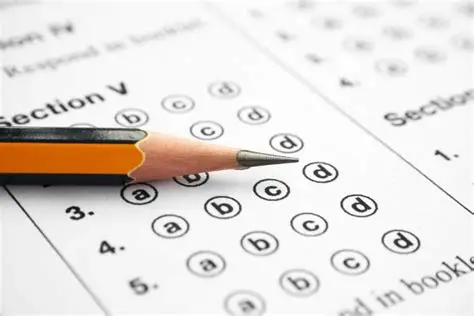For decades, U.S. universities used standardized test scores to select their students. The COVID-19 pandemic caused this trend to change. With centers across the globe closed, students were not able to take the tests. Hence, the universities decided that they would become ‘test optional.’ This included the eight Ivy League colleges as well.
All those who were critical of standardized tests thought that this would herald a new era, with colleges permanently dropping the need for these scores. They believed that these tests, firstly, did not enhance students’ knowledge and were giving rise to rote and memorization as the focus was on how to score well; secondly, students belonging to lower socio-economic communities with no access to the internet, resources, or libraries were inherently disadvantaged.
Unveiling the testing policies.
This year, colleges like Dartmouth, Brown, and Yale announced that they would require students to submit their scores for the admission cycle of 2024–25, making tests mandatory. Harvard too announced that it would require the SAT or ACT to be submitted. Close on the heels, Caltech made the same announcement. Princeton, Stanford, Cornell, and the University of Pennsylvania will remain test-optional for another year or two. MIT had announced in 2022 that they would require test scores. The dropping of the tests was viewed as a way to encourage underrepresented students to apply, but the sudden volte-face by many colleges, giving rise to a fractured policy, is wreaking havoc for students and parents.
Why do colleges want to reinstate standardized tests
Colleges in favor of the tests believe that the SAT/ACT scores have a two-pronged advantage. Firstly, it enables them to predict the first-year college grades, as each of these colleges finds a close correlation between the standardized score and the first-year college grades. UT Austin, which also requires test scores, said that on analyzing their class admitted under the test-optional policy, the students who had opted to submit their test scores had an average GPA of 0.86-grade points higher in the first semester than those who had opted out.
Secondly, since the top colleges receive an application pool of high scorers all having a high GPA of 4, they need a way to go beyond the high school’s grade inflation to differentiate the students in the context of academic excellence.
Read More: Bicycle Design and Fabrication
Yale, too, emphasized the importance of context in its announcement: “Tests can highlight an applicant’s areas of academic strength, reinforce high school grades, fill in gaps in a transcript stemming from extenuating circumstances, and—most importantly—identify students whose performance stands out in their high school context.”
Colleges requiring standardized test scores:
| Brown University Class of 2029 onwards | Louisiana Tech University |
| Dartmouth College, Class of 2029 onwards | Massachusetts Institute of Technology |
| Florida Atlantic University | Purdue University |
| Florida Gulf Coast University | The University of Arkansas |
| The Florida Institute of Technology | University of Central Florida |
| Florida International University | University of Florida |
| Florida State University | University of Georgia |
| Georgetown University | University of North Florida |
| Georgia College & State University | University of South Florida |
| Georgia Institute of Technology | The University of Tennessee |
| Louisiana State University | Yale University, Class of 2029 onwards |
Crafting your application plan for 2024
The application process is becoming increasingly competitive among highly selective colleges and universities. Students must start scrutinizing their college list, and extracurriculars and leverage the expertise of college counselors to make a balanced college list, mapping them to their best fit.
Read More: World Ranking Report
Additionally, you can learn about the colleges that remain test-optional in our previous blog, US Test Optional Colleges-2024-25 | Ivy Central. Since the testing policies are in flux, students need to double-check the requirements on each school’s official website.
Besides the testing policies, students must be aware of the evolving admissions landscape to make informed decisions and position themselves strategically in the competitive realm of college applications.
Embark on a transformative higher education journey and elevate your path to academic success with the expert guidance and personalized support of an Ivy Central College counselor.






